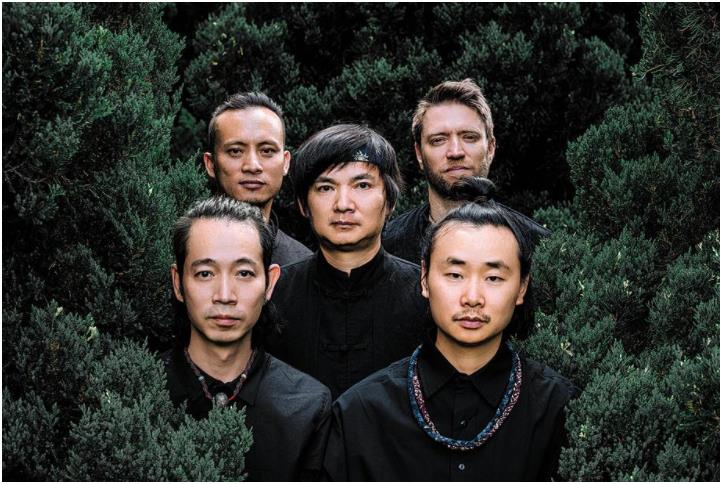Music of the mountain men
 0 Comment(s)
0 Comment(s) Print
Print E-mail China Daily, July 18, 2021
E-mail China Daily, July 18, 2021

The Chinese word shan meaning mountain appears in the name of the Chinese band Shanren, literally meaning "mountain men". It has also been used in the band's first two albums: the self-titled album in 2009 and Ting Shan, or Listen to the Mountain, in 2013.
As the band's frontman Qu Zihan puts it, "We all come from the mountains", and "The band's music implies wisdom with Chinese characteristics."
On June 26 the band released their third album in eight years. The new album continues the band's style of using the word shan and is titled Shan Dao, combining mountain and road.
"Dao refers to the road we've traveled so far," Qu says. "We also look back upon our experience as a band, summing up our musical philosophy."
Formed in 1999, the band, hailing from the mountainous province of Yunnan, uses a number of musical instruments of ethnic groups, such as: the xianzi, a plucked instrument of the Yi ethnic group; the bawu, a blown instrument of the Hani ethnic group; and the dabiya, a plucked stringed instrument of Nu ethnic group.
The new album, featuring 11 songs, opens with a song titled Birdsong, which was adapted from a folksong of the Va ethnic group in Yunnan province. The song, performed in local languages of the Va and Yi ethnic groups, combines electronic music, rap and folk music elements and is an ode to nature.
Jino Song is based on a folk song of the Jino ethnic group, featuring reggaeton beats. The folksong portrays the people of the Jino ethnic group singing and dancing in their tribes in Yunnan province.
Love Song of the Stone Forest was adapted from a folk song of the Yi ethnic group. Folk musical instruments such as the flute, the kouxian (Jew's harp) and the three-stringed huqin are used in performing the song.
In addition to adapting folk songs of ethnic groups of Yunnan province, Qu also wrote original material.
The song Time in Vain talks of his life when he lived in Beijing.
"I walk on the road silently," the lyrics say. "The people passing by are busy. It's another day and I feel reluctant to stand here."
Qu says: "We didn't fit very well with the fast-paced life in bigger cities such as Beijing. When you live in the city too long you feel empty and need to recharge. So in 2017 we returned to Yunnan. Now we have our own studio in Kunming and we grow lots of plants in the garden, and that allows us to be closer to nature.






Go to Forum >>0 Comment(s)